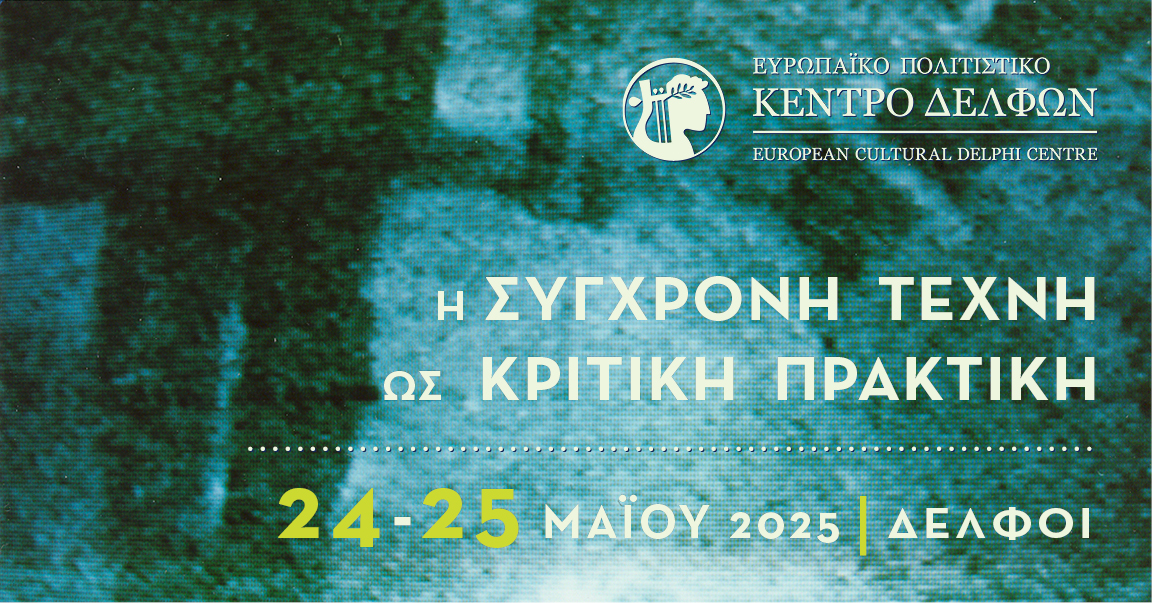READING ARCHITECTUREΛΟΓΟΤΕΧΝΙΚΗ ΦΑΝΤΑΣΙΑ ΚΑΙ ΑΡΧΙΤΕΚΤΟΝΙΚΗ ΕΜΠΕΙΡΙΑ
A symposium organized by the History and Theory Program, School of Architecture, McGill Universityand hosted at Benaki Museum in Athens, Greece under the auspices of the Hellenic Institute of Architecture
PROGRAM
Τuesday 16th June 2015 :
The symposium will start with a round-table conversation on the subject matter, run by Professor Alberto Pérez-Gómez, founding director of the History and Theory Program of the School of Architecture (McGill University), Angeliki Sioli and Yoonchun Jung. The conversation’s main interlocutors, Caroline Dionne, Phoebe Giannisi, Klaske Havik, Mari Lending, Franco Pisani and David Spurr will offer their own insights on the topic, raise and answer questions and open up a dialogue with the attendants. Doing justice to a symposium’s very meaning, a convivial dinner will conclude the event’s first day.
Two days of paper sessions chaired by the six guests will follow, in which all the participants will talk about their work in detail, discuss their points of view and exchange ideas.
Wednesday 17th June 2015 :
Session 1 (9:30am – 11:00am): Reading everyday (un)familiar places
(Chair: Phoebe Giannisi, Responder: Yoonchun Jung)
Architecture Drawn Out of Bruno Schulz’s Poetic Prose
Anca Matyiku (School of Architecture, McGill University)
Reading Boredom in the Space of Architecture: ‘The Minotaur or The Stop in Oran’ by Albert Camus
Christian Parreno (Oslo School of Architecture and Design)
Thresholds of the familiar: a discussion of Axolotl and Blow-Up by Julio Cortázar
Micah Rutenberg (School of Architecture, Woodbury University)
Coffee Break
Session 2 (11:30am – 1:00pm): Reading Urban Lives
(Chair: Klaske Havik, Responder: Panos Leventis, Hammons School of Architecture, Drury University)
“A Brilliant Invention:” Urban Spaces in the Fiction of Ian McEwan and Graham Swift
Anastasia Logotheti (DEREE, The American College of Greece)
Traces of Christiania. A topographical reading of Knut Hamsun´s Hunger
Mathilde Simonsen Dahl (Oslo School of Architecture and Design)
Writing the City: Søren Kierkegaard’s Urban Walks in Copenhagen
Henriette Steiner (Section for Landscape Architecture and Planning, University of Copenhagen)
Lunch Break
Session 3 (2:30pm – 4:30pm): Reading on design and pedagogy
(Chair: Franco Pisani, Responder: Louise Pelletier, School of Design, University of Quebec in Montreal)
The Gesture of Drawing in Antoine de Saint-Exupéry’s Le Petit Prince
Jason Crow (School of Architecture, Louisiana State University)
Walking and Archiving: Locus Solus in Elephant and Castle.
Panos Kouros (Department of Architecture, University of Patras)
Melvilla: An Underline Reading
Marc Neveu (School of Architecture, Woodbury University)
Conceptual Conjunctions Between Literature and Architecture: Philippe Hamon’s Hypothesis and its Consequences for Spatial Design
Nikolaos Ion Terzoglou (School of Architecture, National Technical University of Athens)
Thursday 18th June 2015 :
Session 1 (9:30am – 11:00am): Reading the other-wordly
(Chair: Caroline Dionne, Responder: Alberto Pérez-Gómez)
Perpetual Motion Machine: Paul Scheerbart’s Fantastic Story of Futuristic Architectural Experiences
Sevil Enginsoy Ekinci (Department of Architecture, Kadir Has University)
Lost and Longing: The Sense of Space in E.M. Forster’s The Machine Stops
Susana Oliveira (School of Architecture, University of Lisbon)
Elliptical Architecture: The Unsaid and the Incomplete as conditions for Architectural Intrigue within the Literary Text
Esteban Restrepo Restrepo (Université Paris 8/ École Nationale Supérieure d´Architecture de Paris La Villette)
Coffee Break
Session 2 (11:30am – 1:00pm): Reading on historical perspectives
(Chair: Mari Lending, Responder: Angeliki Sioli)
Generic Subversions
Lily Chi (School of Architecture, Cornell University)
W.G.Sebald’s Austerlitz: Architecture as a Bridge between the Lost Past and the Present
Rumiko Handa (College of Architecture, University of Nebraska)
Enchantment and Entrapment: The Architecture of Poe
Lisa Landrum (Department of Architecture, University of Manitoba)
Lunch Break
Session 3 (2:30pm – 4:30pm): Reading urban redefinitions
(Chair: David Spurr, Responder: Christos Kakalis, Edinburgh School of Architecture and Landscape Architecture, University of Edinburgh)
From text to place: How Orhan Pamuk changed Istanbul?
Figen Kivilcim (Department of Architecture, Anadolu University)
Cognitive maps and topographical narrations
Fabiano Micocci (Independent Researcher)
Building the Socialist Paper City: A Study of Interwar Sci-Fi Literature in the USSR.
Stavros Alifragkis (Hellenic Open University / Hellenic Army Academy)
Modern Thessaloniki: Topographies of change and memory
Eleni Bastea (School of Architecture and Planning, University of New Mexico)


